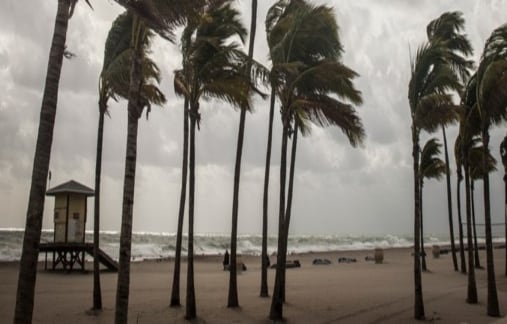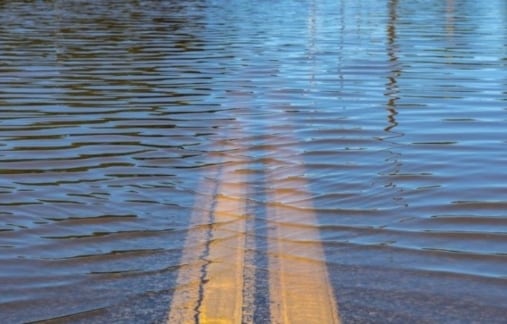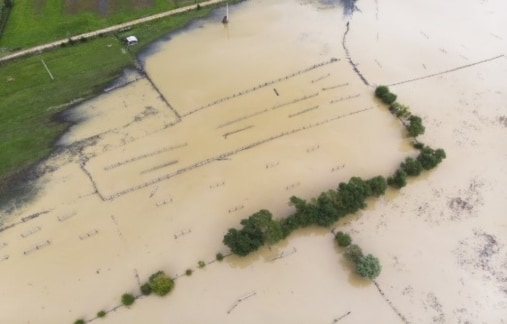Guidance for Emergency Responders in USVI and Puerto Rico



Who this is for: Emergency responders and aid workers traveling to and working in areas of the U.S. Virgin Islands and Puerto Rico impacted by hurricanes and floods.
What this is for: NIOSH recommends safety and health precautions for emergency responders and aid workers who address the hazards that follow natural disasters, such as the hurricanes and floods in the U.S. Virgin Islands and Puerto Rico.
How to use: Use this information to improve safety and reduce exposure risks during the emergency response in the U.S. Virgin Islands and Puerto Rico.
Key Points for Emergency Responders and Aid Workers
- You may face chemical, physical, and biological hazards in the aftermath of hurricanes and floods. Taking proper precautions in these affected areas can help you protect your health and safety as you work.
- Risks could include electrical hazards, carbon monoxide poisoning, physical injuries, heat stress, motor vehicle mishaps, hazardous materials, fire, confined spaces, and falls.
- Outbreaks of infectious disease (such as diarrheal and respiratory illnesses) can occur when water and sewage systems are not functional. Maintaining personal hygiene will be difficult but is still important.
- After a hurricane, flooding gives way to large populations of mosquitoes. Most of these are considered nuisance mosquitoes, but some carry viruses. Always protect yourself from mosquito bites.
- In areas at risk for the spread of mosquito-borne viruses such as Zika, chikungunya, or dengue, the risk can increase with heavy rainfall. Standing water can result in increased hatching of mosquito eggs, which increases the risk of infection.
- Because Zika is a risk in Puerto Rico and the U.S. Virgin Islands, pregnant women should NOT travel there. Their partners and all couples should learn the risks, how to prevent mosquito bites, and how Zika is sexually transmitted. Learn more in the Pre-travel Planning section.
- Make sure you are up to date on routine vaccines. Check your destination for specific vaccine recommendations. Learn more in the Pre-travel Planning section.
- You can check CDC Travel Health Notices to learn about current health issues related to specific destinations: disease outbreaks, special events or gatherings, natural disasters, or other conditions that may affect travelers’ health.
- Have a communications plan, including your organization’s procedures for emergency communication and working overseas. Include phone numbers for professional and personal contacts you may need.
- During your deployment, practice good hygiene and other personal care, including stress relief.
A successful deployment depends on planning. While traveling to and working in areas recovering from a disaster, you may face risks that include floodwater, debris, security issues, and illnesses spread by insect or animal bites. Planning before travel will help you to fully prepare for such hazards and protect your health and safety.
Medical Considerations
Check with your doctor or occupational medical team to find out whether you need to get vaccinations or take medicines before you leave. CDC gives routine and area-specific recommendations for travelers.
These sites provide information about pre-deployment screening and vaccination:
Advice for Health Care Providers Treating Patients in Puerto Rico and U.S. Virgin Islands
CDC Health Information for Humanitarian Aid Workers
Guidance for Pre-exposure Medical Screening of Workers Deployed for Hurricane Disaster Work
Health Information for Travelers to Puerto Rico (U.S.)
Health Information for Travelers to U.S. Virgin Islands
Zika Virus in U.S. Virgin Islands
What to Pack:
Along with your normal clothing and personal care items, pack any other supplies and medications you might need. At your destination, you may have a hard time finding supplies and medicines. They might have different names or different ingredients than what you normally use. The resources below list items to pack as you prepare for travel.
Resources for Travelers: Humanitarian Aid Workers
Healthy Travel Packing List for Travelers to Puerto Rico
Healthy Travel Packing List for Travelers to U.S. Virgin Islands
You should also prepare for safety or health hazards you might face as you respond. Be sure to check whether you can get any protective equipment (like coveralls, steel-toed boots, gloves, hardhats) on site. If you can’t get these items there, you should pack them to take with you. The resources below can help you find out what protective equipment you will need as you work in areas hit by hurricanes or floods.
Hazard Based Guidelines: Protective Equipment for Workers in Hurricane Flood Response
Emergency Response Resources: Personal Protective Equipment
Guidance on Personal Protective Equipment and Clothing for Flood Cleanup Workers
Stress and Coping
Responding to disasters can be both rewarding and stressful. Knowing that you have stress and coping with it as you respond will help you stay well, and this will allow you to keep helping those who are affected. Check the resources below as you prepare for and deal with stress.
Coping With a Disaster or Traumatic Event, Emergency Responders: Tips for Taking Care of Yourself
Resilience Resources for Emergency Response
On-Scene Hazards and Precautions
You should know the possible dangers and proper safety precautions for hurricane and flood cleanup.
Below are resources to prepare for expected response activities. These resources will also help prevent work-related injuries and illnesses in the field once rescue, recovery, and cleanup begin.
Emergency Response Resources: Storm, Flood and Hurricane Response
Emergency Response Resources: Disaster Site Management
FEMA: Hurricane Maria (English and Spanish Resources)
Travelers’ Health: Hurricanes Irma and Maria in the Caribbean
Emergency Responder Health Monitoring and Surveillance (EHRMS)
Once you have completed your response activities, be sure to address any health or stress issues that need monitoring or may arise. Seek support from your family or your supervisor, if possible, or get follow-up care from your personal doctor. Use the resources below to help you cope with stress.
Guidance for Post-exposure Medical Screening of Workers Leaving Hurricane Disaster Recovery Areas
